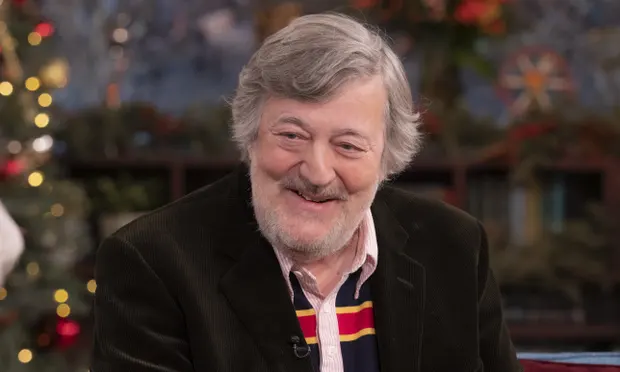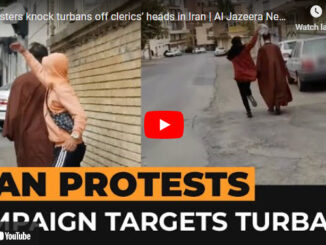
Famous names including Stephen Fry, Emma Thompson and Mark Rylance have joined activists and businesses in calling on the UK’s big five banks to stop financing new oil, gas and coal expansion.
Make My Money Matter, a campaign set up by Richard Curtis, the screenwriter, director and Comic Relief co-founder, has written to the chief executives of HSBC, Barclays, Santander, NatWest and Lloyds to urge these banks to “stop financing fossil fuel expansion”.
Curtis said they wanted to raise public awareness of “the dangerous relationship between UK banks and the fossil fuel industry”.
Members of the public are being invited to join forces with celebrities, politicians, campaigners and business leaders by signing the open letter.
The call comes days after research indicated that banks and finance institutions that had signed up to net-zero pledges were still investing heavily in fossil fuels.
Make My Money Matter pointed to a report in February 2022 from the campaign group ShareAction, which claimed that in 2021 HSBC, Barclays, Santander, NatWest and Lloyds, between them provided almost $16bn (£12.9bn) in finance to the 50 largest oil and gas companies that were expanding production.
Curtis’s group said this was “despite clear guidance from the International Energy Agency that we cannot develop new oil and gas fields if we are to limit global warming to below 1.5C degrees”.
The ShareAction report also stated that between 2016 and 2021 the five UK banks financed the top 50 oil and gas expanders to the tune of a total of $141bn (£114bn).
This is despite surveys that have indicated a growing public demand for banks to act on the climate crisis.
Almost a third (29%) of the HSBC, Barclays, Santander, NatWest and Lloyds, customers surveyed by Make My Money Matter said they would switch their bank if they discovered it was financing fossil fuel expansion. Meanwhile 86% did not think their bank was doing enough to tackle the climate emergency.
In addition to Fry, Thompson and Rylance, the high-profile signatories included the musician Brian Eno, the naturalist and presenter Chris Packham and Green MP Caroline Lucas. Businesses, activists and charities that signed included Just Stop Oil, Greenpeace UK, Save the Children UK, Ecotricity, Ella’s Kitchen, and Triodos Bank.
Signatories pledge not only to campaign for change but also to switch to banks that do not finance fossil fuel expansion.
Curtis said: “We hope this weird and wonderful coalition of activists and actors, businesses and brands, celebrities and climate champions puts a fire under the banks to stop them setting fire to the world.”
In recent months, there have been moves by some UK banks over curbing finance for fossil fuel expansion.
HSBC said it announced restrictions on oil and gas financing last month, and the bank said Make My Money Matter was quoted in a BBC News report apparently welcoming the policy.
A spokesperson for HSBC said: “HSBC aims to reduce emissions in line with a 1.5C pathway to net zero while promoting energy security, affordability and access. Our 1.5C-aligned financed emissions targets and updated energy policy mean we will no longer provide new finance or advisory for new oil and gas fields or related infrastructure, or for the most carbon-intensive oil assets.
“Supporting clients in high-emitting sectors to decarbonise will have the most significant impact on emissions reduction in the real economy and accelerate an orderly transition to net zero.”
Lloyds had announced in October that it would not support direct financing to develop new oil and gas fields. It updated its climate policy to make the change.
A NatWest spokesperson said: “We no longer lend to, or underwrite, coal, major oil and gas producers, unless they have a credible transition plan in line with the Paris agreement, which has resulted in us committing to exit almost £1bn of fossil fuel financing. Our lending to the oil and gas sector has reduced significantly … with exposure to the sector now making up less than 1% of our total lending.”
Barclays said it was one of the first banks to set an “ambition” to become net zero by 2050. A spokesperson said: “Many oil and gas companies are actively engaged and critical to the transition, committing significant resources and expertise to renewable energy. We believe that we can make the greatest difference by supporting these clients to transition to a low-carbon economy, facilitating the finance needed to change their business practices and scale green technologies. Where carbon-intensive companies are unable or unwilling to reduce or eliminate their emissions, we will reduce our support over time.”
A Santander spokesperson said: “We are fully committed to supporting the transition to net zero and have set emission reduction targets for 2030 across a range of material-emitting sectors within our loan book, including power generation, thermal coal, and energy (oil and gas). Our lending policies prohibit the financing of new upstream oil clients and projects, among other restrictions, and for the past 10 years we have consistently been one of the largest providers of renewable energy project finance in the world.”
The year is 2033. Elon Musk is no longer one of the richest people in the world, having haemorrhaged away his fortune trying to make Twitter profitable. Which, alas, hasn’t worked out too well: only 420 people are left on the platform. Everyone else was banned for not laughing at Musk’s increasingly desperate jokes.
In other news, Pete Davidson is now dating Martha Stewart. Donald Trump is still threatening to run for president. And British tabloids are still churning out 100 articles a day about whether Meghan Markle eating lunch is an outrageous snub to the royal family.
Obviously I have no idea what the world is going to look like in a decade. But here’s one prediction I feel very confident making: without a free and fearless press the future will be bleak. Without independent journalism, democracy is doomed. Without journalists who hold power to account, the future will be entirely shaped by the whims and wants of the 1%.
A lot of the 1% are not big fans of the Guardian, by the way. Donald Trump once praised a Montana congressman who body-slammed a Guardian reporter. Musk, meanwhile, has described the Guardian, as “the most insufferable newspaper on planet Earth.” I’m not sure there is any greater compliment.
I am proud to write for the Guardian. But ethics can be expensive. Not having a paywall means that the Guardian has to regularly ask our readers to chip in. If you are able, please do consider supporting us. Only with your help can we continue to get on Elon Musk’s nerves.



